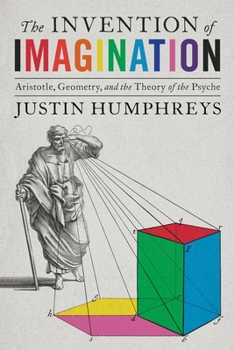The Invention of Imagination: Aristotle, Geometry, and the Theory of the Psyche
Aristotle was the first philosopher to divide the imagination--what he called phantasia--from other parts of the psyche, placing it between perception and intellect. A mathematician and philosopher of mathematical sciences, Aristotle was puzzled by the problem of geometrical cognition--which depends on the ability to "produce" and "see" a multitude of immaterial objects--and so he introduced the category of internal appearances produced by a new part of the psyche, the imagination. As Justin Humphreys argues, Aristotle developed his theory of imagination in part to explain certain functions of reason with a psychological rather than metaphysical framework. Investigating the background of this conceptual development, The Invention of Imagination reveals how imagery was introduced into systematic psychology in fifth-century Athens and ultimately made mathematical science possible. It offers new insights about major philosophers in the Greek tradition and significant events in the emergence of ancient mathematics while offering space for a critical reflection on how we understand ourselves as thinking beings.
Format:Hardcover
Language:English
ISBN:0822947404
ISBN13:9780822947400
Release Date:October 2023
Publisher:University of Pittsburgh Press
Length:176 Pages
Weight:0.82 lbs.
Dimensions:0.6" x 6.3" x 9.2"
Customer Reviews
0 rating





